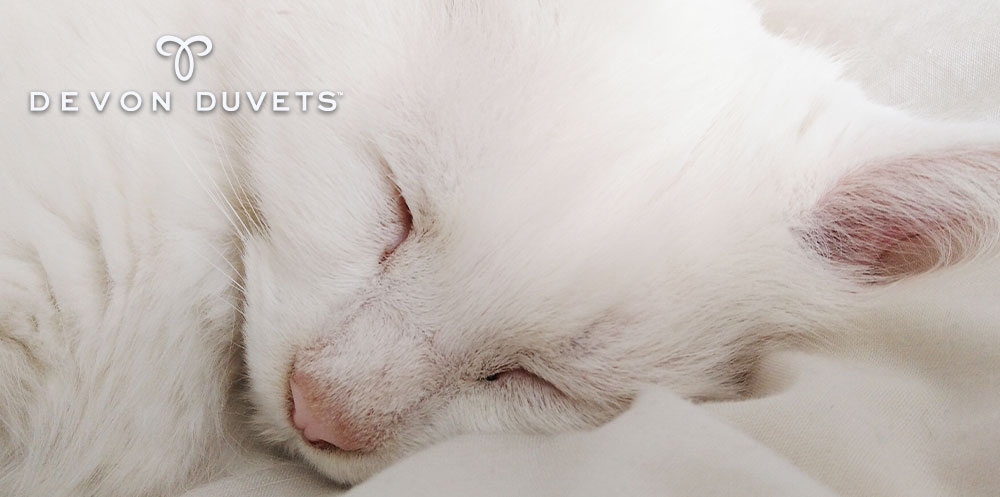Surprising Sleep Facts

We spend around one third of our life asleep and that generally tends to be around 6 – 8 hours of sleep a night, which also fluctuates depending on our age. Sleep is important for our mental and physical wellbeing but there are also some interesting facts about sleep, which we thought we’d share with you.
Sleep is different for men and women
According to the National Sleep Foundation, men have a longer circadian rhythm (our body’s natural sleep-wake cycles), by about six minutes, which means they feel less tired in the evening. Women tend to have a shorter cycle, which can mean they are more likely to wake up earlier.
15% of us sleepwalk
We were surprised to discover that studies have found so many of us do this - and even more so to learn that apparently it is fine to gentley wake someone if they are found sleepwalking, especially if they might be at risk.
Altitude affects sleep
The higher the altitude, the less oxygen in the air. This can make it harder for us to go to sleep. Altitude is described as approximately 13,200 feet or more.
Our sense of smell is less during sleep
Research has shown that although noise wakes us up as we sleep, smells don’t – and this is one of the reasons that fire alarms were invented.
We don’t always dream in colour
About 12% of us dream in black and white. This seems like a lot, but studies have shown that before colour TVs, nearly 75% of us dreamt in black and white.
We don’t sleep through the night
We all wake up a few times a night, often without realising it. This can be triggered by being too hot or too cold, noise or being disturbed our partner’s movements whilst they sleep. Waking up during the night isn’t necessarily a problem, unless you are having difficulty getting back to sleep or are spending long periods awake every night. Your choice of bedding can help you achieve a more restful sleep (more on that later…) but if you have any real concerns about your sleep patterns, then do talk to your doctor.
How much do animals sleep?
Some animals are more active during the day (diurnal), and some are more active at night (nocturnal). There are also animals that tend to be more active at dawn, dusk and twilight (crepuscular). There is a huge variation in the amount of sleep that an animal needs, depending on the species. For example, amongst our fellow mammals, a tiger will sleep for up to 16 hours a day, a dog for 10.6 hours, a hedgehog for 10 hours and a cow for up to 4 hours. The most surprising is the giraffe, which sleeps for an average of only 1.9 hours a day.
How wool bedding can help achieve a better sleep
Wool is a fantastic fibre that is temperature regulating, breathable and moisture wicking. This helps to keep our core body temperature balanced whilst we sleep, and so means that we are more lightly to have a restful night. It’s also resistant to dust mites and the build-up of micro bacteria, so is hypoallergenic and hygienic. Our wool filled duvets, mattress toppers and pillows are made with authentic traceable 100% British wool, encased in 100% cotton woven to our exacting specifications, Natural, sustainable and chemical free, each one is 100% British made, individually handcrafted here in our Devon workshops by our team of professional seamstresses. For further information on our award-winning products, please do get in touch and the team will be happy to help answer any questions.
Ref: National Sleep Foundation
